Number Sequencing Normal Worksheets for Ages 3-4
6 filtered results
-
From - To
Explore our engaging Number Sequencing Normal Worksheets specifically designed for ages 3-4! These printable resources help young learners develop essential counting and sequencing skills in a fun and interactive way. Each worksheet features colorful visuals and easy-to-follow instructions that encourage children to practice number order and enhance their cognitive abilities. Ideal for homeschooling or classroom settings, our worksheets support early numeracy development through playful activities that keep kids excited about learning. Foster a strong foundation in mathematics with our thoughtfully designed materials, perfect for nurturing curiosity and building confidence in young minds. Start your child's numerical journey today!
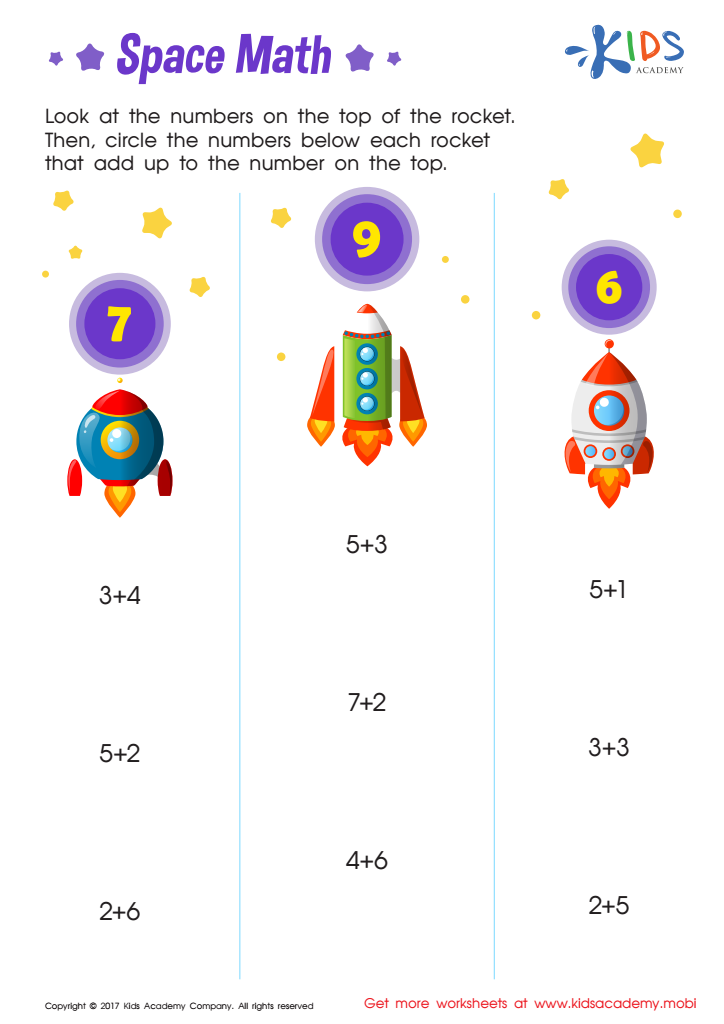

Addition: Space Math Worksheet
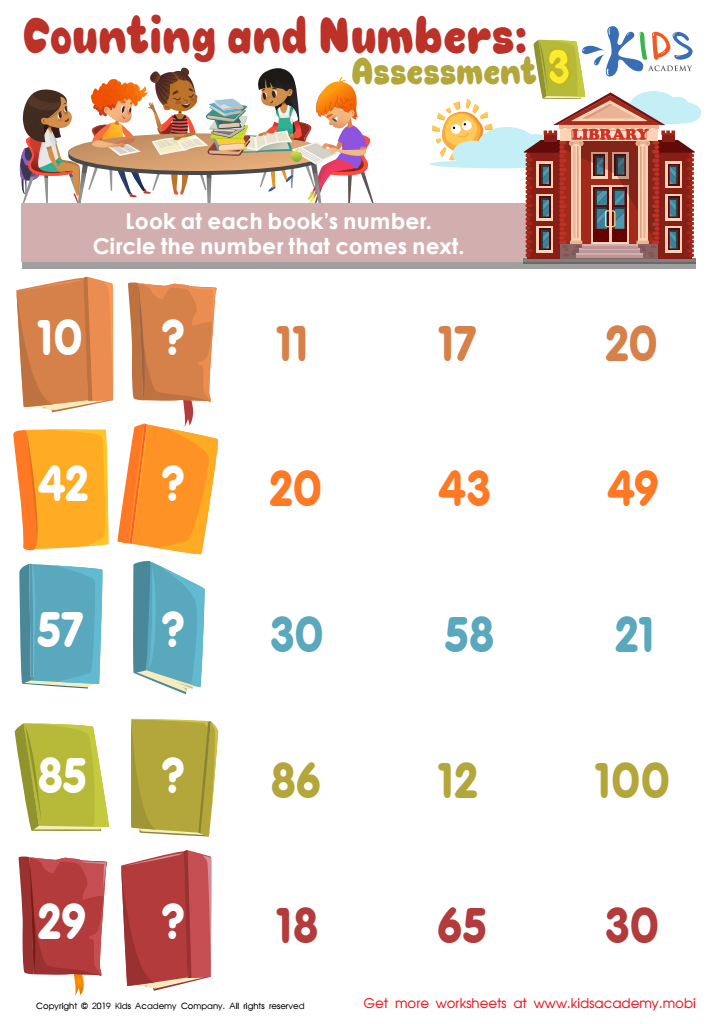

Counting and Numbers: Assessment Worksheet
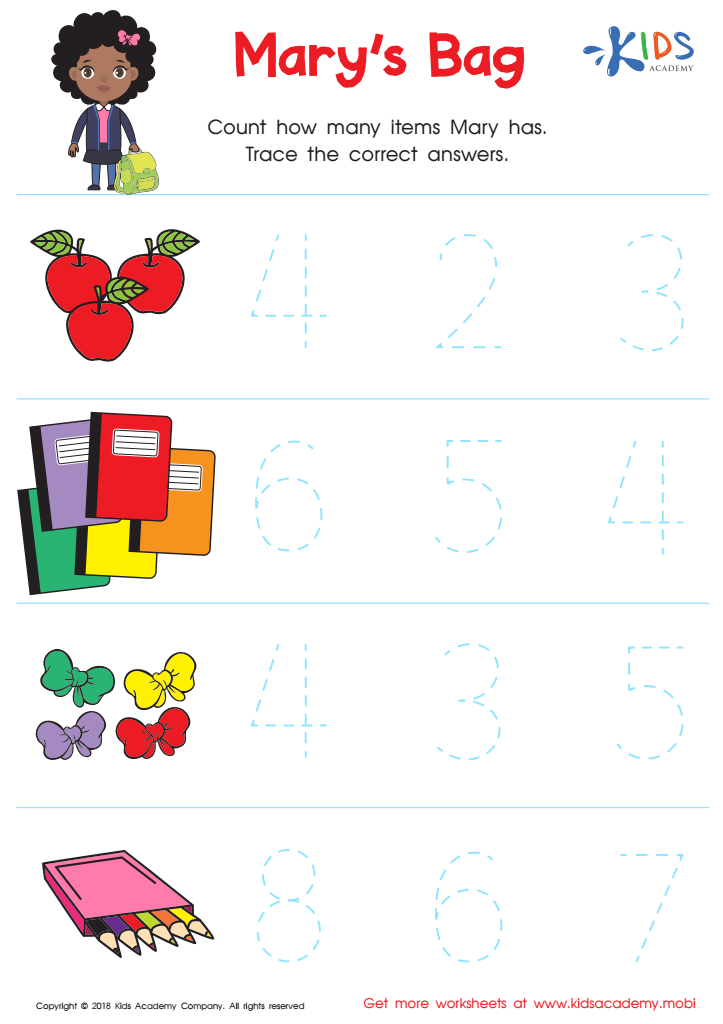

Kindergarten Number Tracing: Mary's Bag Worksheet


Frog Countdown Worksheet
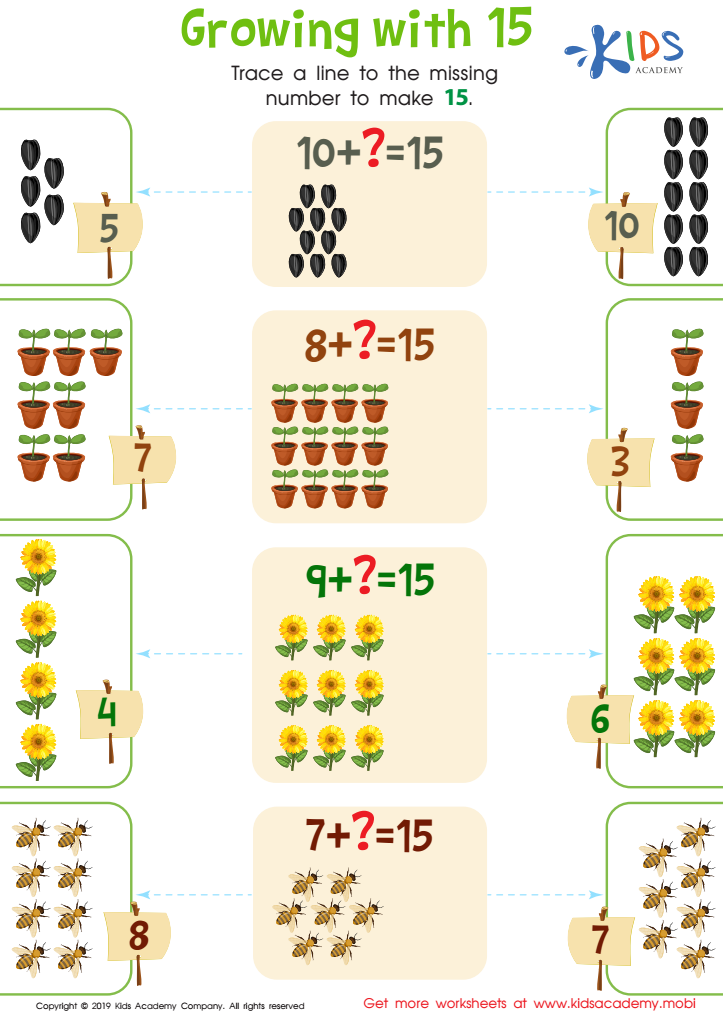

Growing with 15 Worksheet
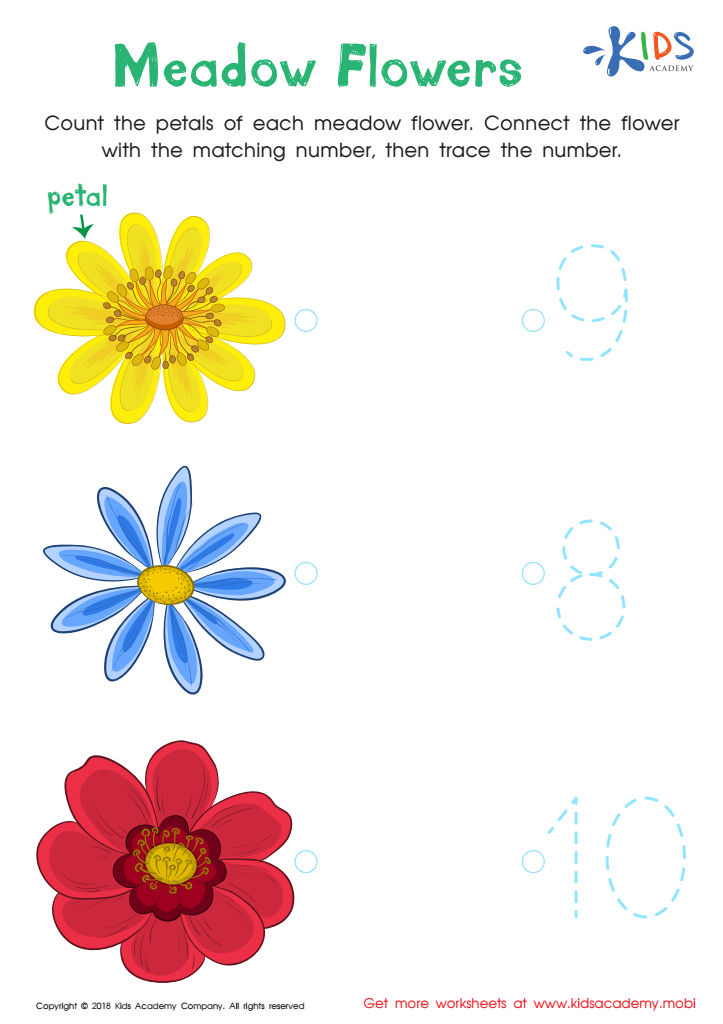

Kindergarten Number Tracing: Medow Flowers Worksheet
Number sequencing is a foundational skill for early childhood development, particularly for children aged 3-4. Parents and teachers should prioritize this skill because it lays the groundwork for a child's mathematical understanding and overall cognitive development. At this age, children are beginning to understand the concept of counting, and engaging them in number sequencing activities helps solidify their ability to recognize and order numbers.
Understanding and practicing number sequencing fosters critical thinking and problem-solving abilities. It also enhances a child's memory and attention span, facilitating better learning outcomes as they progress in school. Moreover, early mastery of number sequencing aids in the comprehension of patterns, which is essential for later math skills, such as addition, subtraction, and even more complex concepts.
Beyond academics, number sequencing activities can be enjoyable and interactive, promoting social skills through group games and discussions. Additionally, these experiences allow children to build confidence in their abilities, nurturing a positive attitude toward learning. Overall, fostering number sequencing in early childhood is crucial, as it supports mathematical fluency, cognitive growth, and a lifelong love for learning—all important for a child’s future success.
 Assign to My Students
Assign to My Students
















